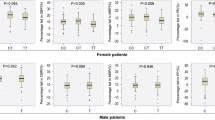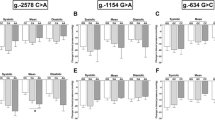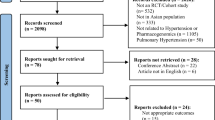Abstract
Genetic factors may influence the response to antihypertensive medication. A number of studies have investigated genetic polymorphisms as determinants of cardiovascular response to antihypertensive drug therapy. In most candidate gene studies, no such drug-gene interactions were found. However, there is observational evidence that hypertensive patients with the 460W allele of the α-adducin gene have a lower risk of myocardial infarction and stroke when treated with diuretics compared with other antihypertensive therapies. With regard to blood pressure response, interactions were found between genetic polymorphisms for endothelial nitric oxide synthase and diuretics, the α-adducin gene and diuretics, the α-subunit of G protein and β-adrenoceptor antagonists, and the ACE gene and angiotensin II type 1 (AT1) receptor antagonists. Other studies found an interaction between ACE inhibitors and the ACE insertion/deletion (I/D) polymorphism, which resulted in differences in AT1 receptor mRNA expression, left ventricular hypertrophy and arterial stiffness between different genetic variants. Also, drug-gene interactions between calcium channel antagonists and ACE I/D polymorphism regarding arterial stiffness have been reported. Unfortunately, the quality of these studies is quite variable. Given the methodological problems, the results from the candidate gene studies are still inconclusive and further research is necessary.





Similar content being viewed by others
References
Brown MJ, Haydock S. Pathoaetiology, epidemiology and diagnosis of hypertension. Drugs 2000; 59 Suppl. 2: 1–12
Kaplan RC, Psaty BM, Heckbert SR, et al. Blood pressure level and incidence of myocardial infarction among patients treated for hypertension. Am J Public Health 1999; 89(9): 1414–7
Klungel OH, Kaplan RC, Heckbert SR, et al. Control of blood pressure and risk of stroke among pharmacologically treated hypertensive patients. Stroke 2000 Feb; 31(2): 420–4
Klungel OH, Strieker BHcH, Paes AHP, et al. Excess stroke among hypertensive men and women attributable to undertreatment of hypertension. Stroke 1999 Jul; 30(7): 1312–8
Materson BJ, Reda DJ, Preston RA, et al. Response to a second single antihypertensive agent used as monotherapy for hypertension after failure of the initial drug: Department of Veterans Affairs Cooperative Study Group on Antihypertensive Agents. Arch Intern Med 1995; 155(16): 1757–62
Sander C. Genomic medicine and the future of health care. Science 2000; 287(5460): 1977–8
Vesell ES. Therapeutic lessons from pharmacogenetics. Ann Intern Med 1997; 126(8): 653–5
Harrap SB. Hypertension: genes versus environment. Lancet 1994; 344(8916): 169–71
O’Shaughnessy KM. The genetics of essential hypertension. Clin Pharmacol 2001; 51(1): 5–11
Wilson FH, Disse-Nicodeme S, Choate KA, et al. Human hypertension caused by mutations in WNK kinases. Science 2001 Aug; 293(5532): 1107–12
Doris PA. Hypertension genetics, single nucleotide polymorphisms, and the common disease: common variant hypothesis. Hypertension 2002; (2): 323–31
Weber WW. The legacy of pharmacogenetics and potential applications. Mutat Res 2001; 479(1–2): 1–18
Inazu A, Jiang XC, Haraki T, et al. Genetic cholesteryl ester transfer protein deficiency caused by two prevalent mutations as a major determinant of increased levels of high density lipoprotein cholesterol. J Clin Invest 1994; 94(5): 1872–82
Philips KA, Veenstra VL, Oren E, et al. Potential role of pharmacogenomics in reducing adverse drug reactions. JAMA 2001 Nov; 14(286): 2270–9
Flockhart DA, Tanus-Santos JE. Implications of cytochrome P450 interactions when prescribing medication for hypertension. Arch Intern Med 2002 Feb; 162(4): 405–12
Levy G, Ebling WF, Forrest A. Concentration- or effect-controlled clinical trails with sparse data. Clin Pharmacol Ther 1994; 56(1): 1–8
Turner ST, Schwartz GL, Chapman AB, et al. Antihypertensive pharmacogenetics: getting the right drug into the right patient. J Hypertens 2001; 19(1): 1–11
Cadman PE, O’Connor DT. Pharmacogenetics of hypertension. Curr Opin Nephrol Hypertens 2003 Jan; 12(1): 61–70
Turner ST, Boerwinkle E. Genetics of blood pressure, hypertensive complications, and antihypertensive responses. Pharmacogenetics 2003 Jan; 4(1): 53–65
Bianchi G, Staessen JA, Patrizia F. Pharmacogenomics of primary hypertension: the lessons from the past to look towards the future. Pharmacogenomics 2003 May; 4(3): 279–96
Cusi D, Barlassina C, Azzani T, et al. Adducin polymorphism in primary hypertension: linkage and association study; relationship to salt sensitivity. Lancet 1997; 349(9062): 1353–7
Glorioso N, Manunta P, Filigheddu F, et al. The role of alpha-adducin polymorphism in blood pressure and sodium handling regulation may not be excluded by negative association study. Hypertension 1999; 34 (4 Pt 1): 649–54
Psaty BM, Smith NL, Heckbert SR, et al. Diuretic therapy, the α-adducin gene variant, and the risk of myocardial infarction or stroke in persons with treated hypertension. JAMA 2002; 287(13): 1680–9
Sciarrone MT, Stella P, Barlassina C, et al. ACE and α-adducin polymorphism as markers of individual response to diuretic therapy. Hypertension 2003; 41: 398–403
Turner ST, Chapman AB, Schwartz GL, et al. Effects of endothelial nitric oxide synthase, oadducin, and other candidate gene polymorphisms on blood pressure response to hydrochlorothiazide. Am J Hypertens 2003 Oct; 16: 834–9
Schwartz GL, Turner ST, Chapman AB, et al. Interacting effects of gender and genotype on blood pressure response to hydrochlorothiazide. Kidney Int 2002; 62: 1718–23
Turner ST, Schwartz GL, Chapman AB, et al. C825T polymorphism of the G protein B3-subunit and antihypertensive response to a thiazide diuretic. J Hypertens 2001; 37 (2 Pt 2): 739–43
Dudley C, Keavney B, Casadei B, et al. Prediction of patient responses to antihyertensive drugs using genetic polymorphisms: investigation of renin-angiotensin system genes. J Hypertens 1996; 14(2): 259–62
Kurland L, Melhus H, Karlsson J, et al. Angiotensin converting enzyme gene polymorphism predicts blood pressure response to angiotensin II receptor type 1 antagonist treatment in hypertensive patients. J Hypertens 2001; 19(10): 1783–7
Kurland L, Melhus H, Karlsson J, et al. Polymorphisms in the angiotensinogen and angiotensin II type 1 receptor gene are related to change in left ventricular mass during antihypertensive treatment: results from the Swedish Irbesartan Left Ventricular Hypertrophy Investigation versus Atenolol (SILVHIA) trial. J Hypertens 2002; 20(4): 657–63
Dieguez-Lucena JL, Aranda-Lara P, Ruiz-Galdon M, et al. Angiotensin I-converting enzyme genotypes and angiotensin II receptors: response to therapy. Hypertension 1996; 28(1): 98–103
O’Shaughnessy KM, Fu B, Dickerson C, et al. The gain-of-function G389R variant of the betal-adrenoceptor does not influence blood pressure or heart rate response to beta-blockade in hypertensive subjects. Clin Sci 2000; 99: 233–8
Johnson JA, Zineh I, Puckett BJ, et al. Betal-adrenergic receptor polymorphisms and antihypertensive response to metoprolol. Clin Pharmacol 2003 Jul; 74(1): 44–52
Kurland L, Melhus H, Karlsson J, et al. Aldosterone synthase (CYP11B2)-344 C/T polymorphism is related to antihypertensive response. Am J Hypertens 2002 May; 15(5): 389–93
Liljedahl U, Karlsson J, Melhus H, et al. A microarray minisequencing system for pharmacogenetic profiling of antihypertensive drug response. Pharmacogenomics 2003 Jan; 13(1): 7–17
Hallberg P, Lind L, Michaëlsson K, et al. B2 bradykinin receptor (B2BKR) polymorphism and change in left ventricular mass in response to antihypertensive treatment: results from the Swedish Irbesartan Left Ventricular Hypertrophy Investigation versus Atenolol (SILVHIA) trial. J Hypertens 2003; 21: 621–4
Jia H, Hingorani AD, Sharma P, et al. Association of the Gsα gene with essential hypertension and response to β-blockade. Hypertension 1999; 34(1): 8–14
Hingorani AD, Jia H, Stevens PA, et al. Renin-angiotensin system gene polymorphisms influences blood pressure and the response to angiotensin converting enzyme inhibition. J Hypertens 1995; 13 (12 Pt 2): 1602–9
Stavroulakis GA, Makris TK, Krespi PG, et al. Predicting response to chronic antihypertensive treatment with fosinopril: the role of angiotensin-converting enzyme gene polymorphism. Cardiovasc Drugs Ther 2000; 14(4): 427–32
Kohno M, Yokokawa K, Minami M, et al. Association between angiotensin converting-enzyme gene polymorphisms and regression of left ventricular hypertrophy in patients treated with angiotensin-converting enzyme inhibitors. Am J Med 1999; 106(5): 544–9
Iwai N, Ohmichi N, Uchida Y, et al. Does the angiotensin converting enzyme gene polymorphism affect patients response to ACE inhibitor? Circulation 1998; 98 Suppl. I: 1–723
Sasaki M, Oki T, Iuchi A, et al. Relationship between the angiotensin converting enzyme gene polymorphism and the effects of enalapril on left ventricular hypertrophy and impaired diastolic filling in essential hypertension: M-mode and pulsed Doppler echocardiograhic studies. J Hypertens 1996; 14(12): 1403–8
Ochmichi N, Iwai N, Uchedia Y, et al. Relationship between the response to the angiotensin converting enzyme inhibitor imidapril and the angiotensin converting enzyme genotype. Am J Hypertens 1997; 10: 951–5
Parving HH, Jacobsen P, Tarnow L, et al. Effect of deletion polymorphism of angiotensin converting enzyme gene on progression of diabetic nephropathy during inhibition of angiotensin converting enzyme: observational follow up study. BMJ 1996; 313(7057): 591–4
Hallberg P, Karlsson J, Kurland L, et al. The CYP2C9 genotype predicts the blood pressure response to irbesartan: results from the Swedish Irbesartan Left Ventricular hypertrophy investigations vs Atenolol (SILVA) trial. J Hypertens 2002; 20(10): 2089–93
Benetos A, Cambien F, Gautier S, et al. Influence of the angiotensin II type 1 receptor gene polymorphism on the effects of perindopril and nitrendipine on arterial stiffness in hypertensive individuals. Hypertension 1996; 28(6): 1081–4
van Essen GG, Rensma PL, de Zeeuw D, et al. Association between angiotensin-converting-enzyme gene polymorphism and failure of renoprotective therapy. Lancet 1996; 347(8994): 94–5
McNamara DM, Holubkov R, Janosko K, et al. Pharmacogenetic interactions between β-blocker therapy and the angiotensin-converting enzyme deletion polymorphism in patients with congestive heart failure. Circulation 2001; 103(12): 1644–8
Moriyama T, Kitamura H, Ochi S, et al. Association of angiotensin I-converting enzyme gene polymorphism with susceptibility to antiproteinuric effect of angiotensin converting enzyme inhibitors in patients with proteinuria. J Am Soc Nephrol 1995; 6(6): 1676–8
O’Toole L, Stewart M, Padfield P, et al. Effect of the insertion/ deletion polymorphism of the angiotensin-converting enzyme gene on response to angiotensin-converting enzyme inhibitors in patients with heart failure. J Cardiovasc Pharmacol 1998; 32(6): 427–32
Okamura A, Ohishi M, Rakugi H, et al. Pharmacogenetic analysis of the effect of angiotensin-converting enzyme inhibitor on restenosis after percutaneous transluminal coronary angioplasty. Angiology 1999; 50(10): 811–22
van der Kleij FG, Schmidt A, Navis GJ, et al. Angiotensin converting enzyme insertion/deletion polymorphism and short-term renal response to ACE inhibition: role of sodium status. Kidney Int Suppl 1997 Dec; 63: S23–6
Meurice T, Bauters C, Hermant X, et al. Effect of ACE inhibitors on angiographic restenosis after coronary stenting (PARIS): a randomised, double-blind, placebo-controlled trial. Lancet 2001; 357(9265): 1321–4
Harrap SB, Tzourio C, Cambien F, et al. The ACE gene I/D polymorphism is not associated with the blood pressure and cardiovascular benefits of ACE inhibition. Hypertension 2003 Sep; 42(3): 297–303
Manunta P, Cusi D, Barlassina C, et al. Alpha-adducin polymorphisms and renal sodium handling in essential hypertensive patients. Kidney Int 1998; 53(6): 1471–8
Manunta P, Burnier M, D’Amico M, et al. Adducin polymorphism affects renal proximal tubule reabsorption in hypertension. Hypertension 1999; 33(2): 694–7
Ferrandi M, Salardi S, Tripodi G, et al. Evidence for interaction between adducin and Na,K-ATPase: differential effect of hypertension related human and rat adducin polymorphisms. Am J Physiol 1999; 277 (4 Pt 2): 1338–49
Tripodi G, Valtorta F, Torielli L, et al. Hypertension associated-mutations in the adducin α and β subunits affect actin cytoskeleton and ion transport. J Clin Invest 1996; 97(12): 2815–22
Neer EJ. Heterotrimeric G proteins: organizers of transmembrane signals. Cell 1995; 80(2): 249–57
Siffert W, Rosskopf D, Siffert G, et al. Association of a human G-protein beta3 subunit variant with hypertension. Nat Genet 1998; 18(1): 45–8
Rosskopf D, Mantley I, Habich C, et al. Identification and characterization of Gβ3S2, a novel splice variant of the G-protein β3 subunit. Biochem J 2003 Apr; 371 (Pt 1): 223–32
Schorr U, Blaschke K, Beige J, et al. G-protein beta3 subunit 825T allele and the response to dietary salt in normotensive men. J Hypertens 2000 Jul; 18(7): 855–9
Pamies-Andrue E, Ramirez-Lorca R, Stiefel Garcia-Junco P, et al. Renin-angiotensin-aldosterone system and G-protein beta-3 subunit gene polymorphisms in salt-sensitive essential hypertension. J Hum Hypertens 2003 Mar; 17(3): 187–91
Ciechanowicz A, Widecka K, Drozd R, et al. Lack of association between Gly460Trp polymorphism of alpha-adducin gene and salt sensitivity of blood pressure in Polish hypertensives. Kidney Blood Press Res 2001; 24(3): 201–6
Nickenig G, Strehlow K, Roeling J, et al. Salt induces vascular AT1 receptor overexpression in vitro and vivo. Hypertension 1998; 31(6): 1272–7
Poch E, Gonzalez D, de la Sierra A, et al. Genetic variation of the gamma subunit of the epithelial Na+ channel and essential hypertension: relationship with salt sensitivity. Am J Hypertens 2000; 13 (6 Pt 1): 648–53
Giner V, Poch E, Bragulat E, et al. Renin-angiotensin system genetic polymorphisms and salt sensitivity in essential hypertension. Hypertension 2000; 35 (1 Pt 2): 512–7
Bonnardeaux A, Davies E, Jeunemaitre X, et al. Angiotensin II type-1 receptor gene polymorphisms in human essential hypertension. Hypertension 1994; 24(1): 63–9
Spiering W, Kroon AA, Fuss-Lejeune MMJJ, et al. Angiotensin II sensitivity is associated with the angiotensin type I receptor A1166C polymorphism in essential hypertensives on a high sodium diet. Hypertension 2000; 36(3): 411–6
Takami S, Imai Y, Katsuya T, et al. Gene polymorphism of the renin-angiotensin system associates with risk for lucanar intfarctions: the Ohasama study. Am J Hypertens 2000; 13(2): 121–7
Buraczynska M, Pijanowski Z, Spasiewicz D, et al. Reninangiotensin system gene polymorphisms: assessment of the risk of coronary heart disease. Kardiol Pol 2003 Jan; 58(1): 1–9
Tiret L, Bonnardeaux A, Poirier O, et al. Synergistic effects on angiotensin-converting enzyme and the angiotensin-II type 1 receptor gene polymorphisms on risk of myocardial infarction. Lancet 1994; 344(8927): 910–3
Tomino Y, Makita Y, Shike T, et al. Relationship between polymorphism in the angiotensinogen, angiotensin-converting enzyme or the angiotensin II receptor and renal progress in Japanese NIDDM patients. Nephron 1999; 82(2): 139–44
van der Kleij FG, Rensma PL, de Zeeuw D, et al. Angiotensin converting enzyme insertion/deletion polymorphism and short-term renal response to ACE inhibition: role of sodium status. Kidney Int Suppl 1997 Apr; 63(4): 23–6
Davies E, Holloway CD, Ingramm MC, et al. Aldosterone excretion rate and blood pressure in essential hypertension are related to polymorphic differences in the aldosterone synthase gene CYP11B 2. Hypertension 1999 Feb; 33(2): 703–7
Jeunemaitre X, Soubrier F, Kotelevtsev YV, et al. Molecular basis of hypertension: role of human hypertension: role of angiotensinogen. Cell 1992 Oct; 71(1): 169–80
Caulfield M, Lavender P, Farrall M, et al. Linkage of the angiotensinogen gene to essential hypertension. N Engl J Med 1994 Jun; 330(23): 1629–33
Brand E, Chatelain N, Keavney B, et al. Evaluation of the angiotensinogen locus in human essential hypertension: a European study. Hypertension 1998 Mar; 31(3): 725–9
Kunz R, Kreutz R, Beige J, et al. Association between the angiotensinogen 235T-variant and essential hypertension in whites: a systematic review and methodological appraisal. Hypertension 1997; 30(6): 1331–7
Luan JA, Wong WY, Day NE, et al. Sample size determination for studies of gene-environment interaction. Int J Epidemiol 2001; 30: 1035–40
Wong MY, Day NE, Luan JA, et al. The detection of gene-environment interaction for continuous traits: should we deal with measurement error by bigger studies or better measurements? Int J Epidemiol 2003 Feb; 32(1): 51–7
Jeunemaitre X, Inoue I, Williams C, et al. Haplotypes of angiotensinogen in essential hypertension. Am J Hum Genet 1997; 96(6): 295–300
Inoue I, Nakajima T, Williams CS, et al. A nucleotide substitution in the promoter of human angiotensinogen is associated with essential hypertension and effects basal transcription in vitro. J Clin Invest 1997; 99(7): 1786–97
Hunt SC, Cook NR, Oberman A, et al. Angiotensinogen genotype, sodium reduction, weight loss, and prevention of hypertension: trials of hypertension prevention, phase II. Hypertension 1998; 32(3): 393–401
Rigat B, Hubert C, Alhenc Gelas F, et al. An insertion/deletion polymorphism in the angiotensin I converting enzyme gene accounting for half the variance of serum enzyme levels. J Clin Invest 1990; 86(4): 1343–6
Tiret L, Rigat B, Visvikis S, et al. Evidence, from combined segregation and linkage analysis, that a variant of the angiotensin I-converting enzyme (ACE) gene controls plasma ACE levels. Am J Hum Genet 1992; 51(1): 197–205
Danser AH, Schalekamp MA, Bax WA, et al. Angiotensin-converting enzyme in the human heart: effect of the deletion/ insertion polymorphism. Circulation 1995; 92(6): 1387–8
McKenzie CA, Julier C, Forrester T, et al. Segregation and linkage analysis of serum angiotensin I-converting enzyme levels: evidence for two quantitative-trait loci. Am J Hum Genet 1995; 57(6): 1426–35
Villard E, Tiret L, Visvikis S, et al. Identification of new polymorphisms of the angiotensin I-converting enzyme (ACE) gene, and study of their relationship to plasma ACE levels by two-QTL segregation-linkage analysis. Am J Hum Genet 1996; 58(6): 1268–78
Risch N, Merikangas K. The future of genetic studies of complex human diseases. Science 1996; 273(5281): 1516–7
Thomas DC, Witte JC. Point: population stratification: a problem for case-control studies of candidate-gene associations? Cancer Epidemiol Biomark 2002 Jun; 11(6): 505–12
Materson BJ, Reda DJ, Cushman WC, et al. Single-drug therapy for hypertension in men: a comparison of six anti-hypertensive agents with placebo. The Department of Veterans Affairs Cooperative Study Group on Antihypertensive Agents. N Engl J Med 1993; 328: 914–21
Preston RA, Materson BJ, Reda DJ, et al. Age-race subgroups compared with renin profile as predictors of blood pressure response to antihypertensive therapy: Department of Veterans Affairs Cooperative Study Group on Antihypertensive Agents. JAMA 1998; 280: 1168–72
Chapman AB, Schwartz GL, Boerwinkle E, et al. Predictors of antihypertensive response to a standard dose of hydrochlorothiazide for essential hypertension. Kidney Int 2002; 61: 1047–55
Marino MR, Vachharajani NN. Pharmacogenetics of irbesartan are not altered in special populations. J Cardiovasc Pharmacol 2002 Jul; 40(1): 112–22
Wacholder S, Rothman N, Caporaso N. Counterpoint: bias from population stratification is not a major threat to the validity of conclusions from epidemiological studies of common polymorphisms and cancer. Cancer Epidemiol Biomark Prev 2002 Jun; 11(6): 513–20
Pritchard JK, Rosenberg NA. Use of unlinked genetic markers to detect population stratification in association studies. Am J Hum Genet 1999 Jul; 65(1): 220–8
Rosenberg NA, Pritchard JK, Weber JL, et al. Genetic structure of human populations. Science 2002 Dec; 298: 2381–5
Acknowledgements
Preparation of this article was financially supported by the Netherlands Heart Foundation, grant number: 2001.064. The authors have no conflicts of interest that are directly relevant to the content of this review.
Author information
Authors and Affiliations
Corresponding author
Rights and permissions
About this article
Cite this article
Schelleman, H., Stricker, B.H.C., de Boer, A. et al. Drug-Gene Interactions between Genetic Polymorphisms and Antihypertensive Therapy. Drugs 64, 1801–1816 (2004). https://doi.org/10.2165/00003495-200464160-00006
Published:
Issue Date:
DOI: https://doi.org/10.2165/00003495-200464160-00006




